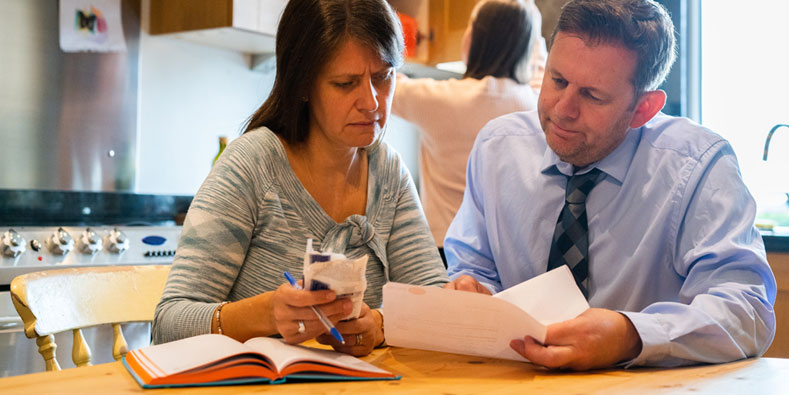The MoneySavingExpert.com downshift challenge: What’s it all about?
The MoneyAware team chats with MoneySavingExpert.com about their downshift challenge, could you...
This page contains information about debt solutions available in England, Wales and Northern Ireland. Debt advice in Scotland involves similar but different solutions. Before considering an IVA as a debt solution, please make sure you fully understand the risks involved when entering an IVA.
As we’ve mentioned previously, there are a lot of misconceptions around IVAs. We frequently hear from people who think they’re on an IVA, when in reality they’re not.
There’s also a lot of inaccurate information about IVAs around the web so to try and put these untruths to rest (and to tie in with the 25th anniversary of the introduction of IVAs) we’ve put together a guide detailing the 12 most obvious differences between an IVA and a debt management plan (DMP).

An IVA is a legally binding arrangement between you and your creditors. On the flipside of this, a DMP is an informal agreement. The legally binding aspect of an IVA means that you’re protected from further action from your creditors as long as you keep up on your IVA payments. DMPs don’t offer legal protection, however your creditors are still more likely to ‘meet you halfway’ as you’re making consistent payments through your plan.
An IVA is less flexible than a DMP, although you can still vary your payment up to 15% on an IVA. Any larger variations may have to be referred to your creditors for them to vote on the decision. DMPs are more flexible than IVAs, and within reason you can change your payments whenever necessary.
An IVA will stop all interest and charges. On a DMP there’s no guarantee that this’ll happen and creditors can continue to add them (although many will freeze interest and charges as a gesture of goodwill).
An IVA has a guaranteed end date. This is usually after 5 years. It can carry on for an extra year, if for example you were required to remortgage and this is no longer an option. On the other hand, because your creditors can still technically add interest and charges during your DMP, it’s very difficult to predict when exactly your plan will end.

If you set up a DMP with a free debt help charity there aren’t any administration fees to pay; with an IVA, there are fees involved.
You can administrate a DMP yourself or choose a third party to deal with your creditors on your behalf. On an IVA you must use a licensed Insolvency Practitioner.
If you’re recommended for and end up choosing an IVA, your IP will have to delve deep into your financial circumstances. A DMP provider would only usually ask for proof of your income and proof of your debts.
There’s no official minimum amount of debt for a DMP, although this’ll depend on your DMP provider and your circumstances. The lower limit for an IVA is usually around £15k.

Creditors don’t have to accept a DMP agreement. We usually recommend that you send the payments anyway. For an IVA to go ahead 75% of your creditors (by debt value) have to agree to the proposal
Once an IVA goes ahead, all creditor contact will stop. However, if you’re on a DMP, creditors can continue to chase you for extra payments and can follow the standard debt collection procedure.
Every IVA is public information and entered on to the insolvency register. Your DMP isn’t posted about anywhere. People will only find out about it if you tell them.
Finally, an IVA is a form of insolvency where a percentage of your debt is written off. On a DMP you repay your debts in full.
I hope we’ve clarified the differences and pointed out how different IVAs are from DMPs – both have their pros and cons, and which solution is best for you depends on your situation alone.
This page doesn’t discuss all of the key benefits and considerations of IVAs or DMPs and you should always seek expert advice before deciding on which debt solution is right for you. You can read more about individual debt solutions on the StepChange website.
If you’d like more information on which debt solution is best for you, visit our online debt advice service Debt Remedy or speak to one of our advisors.